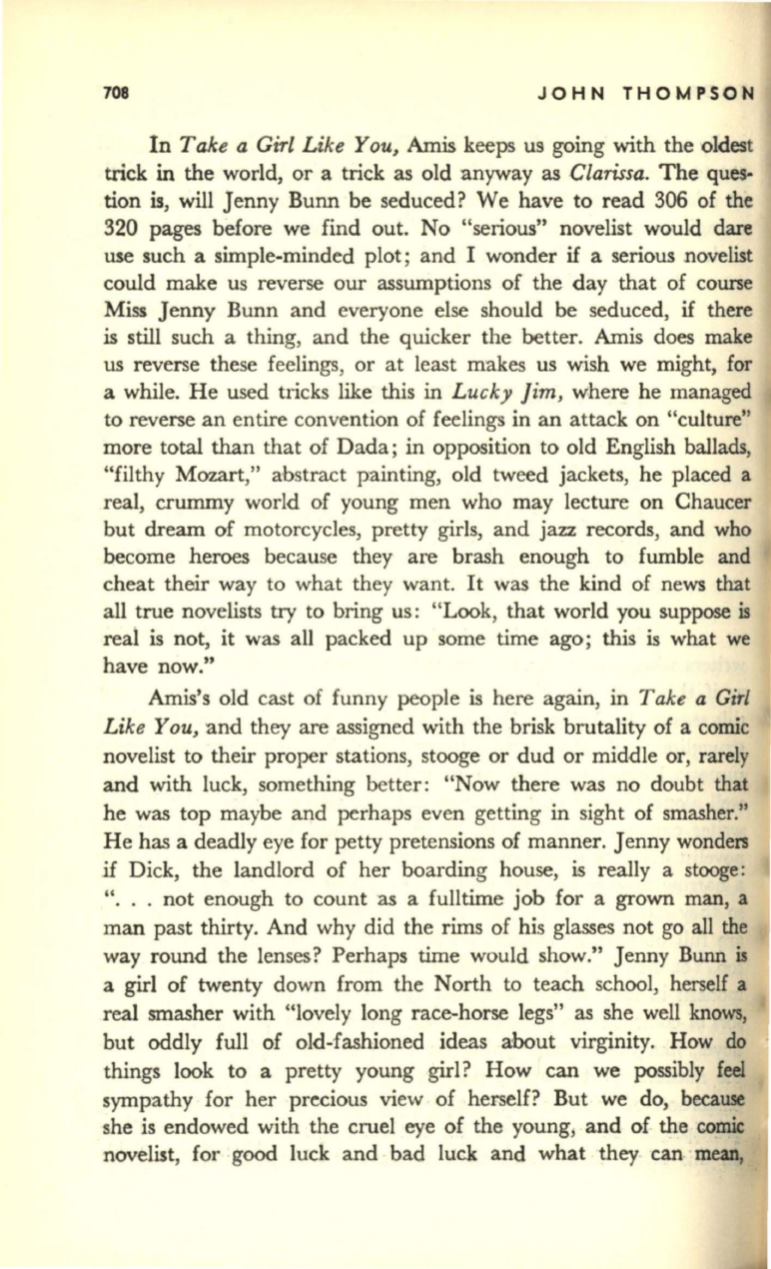
70B
JOHN THOMPSON
In
Take a Girl Like You,
Amis keeps us going with the oldest
trick
in
the world, or a trick as old anyway as
Clarissa.
The ques–
tion
is,
will Jenny Bunn be seduced? We have to read 306 of the
320 pages before we find out. No "serious" novelist would dare
use such a simple-minded plot; and I wonder
if
a serious novelist
could make us reverse our assumptions of the day that of course
Miss Jenny Bunn and everyone else should be seduced,
if
there
is
still such a thing, and the quicker the better. Amis does make
us reverse these feelings, or at least makes us wish we might, for
a while. He used tricks like this in
Lucky Jim,
where he managed
to reverse an entire convention of feelings in an attack on "culture"
more total
than
that of Dada;
in
opposition to old English ballads,
"filthy Mozart," abstract painting, old tweed jackets, he placed a
real, crummy world of young men who may lecture on Chaucer
but dream
of
motorcycles, pretty girls, and jazz records, and who
become heroes because they are brash enough to fumble and
cheat their way to what they want.
It
was the kind of news that
all true novelists
try
to bring us: "Look, that world you suppose is
real is not, it was all packed up some time ago; this is what we
have now."
Amis's old cast of funny people
is
here again, in
Take a Girl
Like You,
and they are assigned with the brisk brutality of a comic
novelist to their proper stations, stooge or dud or middle or, rarely
and with luck, something better: "Now there was no doubt that
he was top maybe and perhaps even getting in sight of smasher."
He has a deadly eye for petty pretensions of manner. Jenny wonders
if
Dick, the landlord of her boarding house,
is
really a stooge:
"... not enough to count as a fulltime job for a grown man, a
man past thirty. And why did the rims of his glasses not go all the
way round the lenses? Perhaps time would show." Jenny Bunn
is
a girl of twenty down from the North to teach school, herself a
real smasher with "lovely long race-horse legs" as she well knows,
but oddly full of old-fashioned ideas about virginity. How do
things look to a pretty young girl? How can we possibly
feel
sympathy for her precious view of herself? But we do, because
she is endowed with the cruel eye of the young, and of the comic
novelist, for good luck and bad luck and what they. can
mean,


